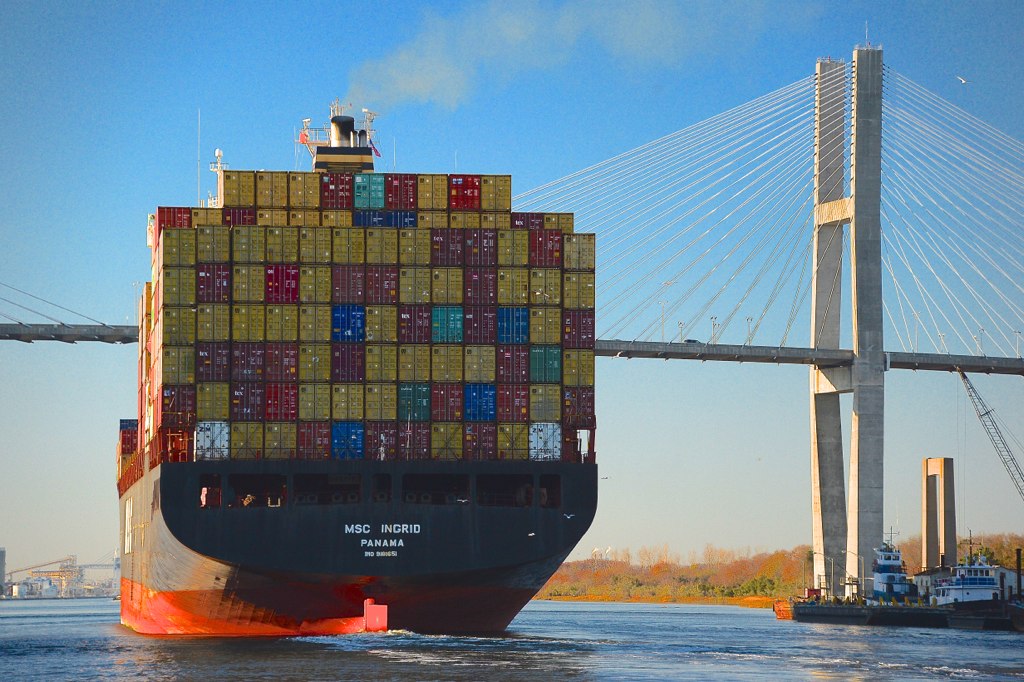Trump Administration’s Policies Prove Controversial
President Donald Trump’s tariffs are beginning to affect the United States economy. Businesses in the North Country are finding the stability of their customer bases threatened. However, some have escaped negative impacts for the time being. The tariffs seem poised to cause an overall economic decline in the region and the U.S. at large.
However, as of Wednesday at approximately 1:30 p.m. President Trump has announced a pause on these tariffs. Writing on social media, he claimed he came to the decision as over 75 trading partners did not retaliate to the tariffs and instead came to Trump to “discuss” some of the issues he raised. President Trump however did not apply this pause to China, saying, “Based on the lack of respect that China has shown to the World’s Markets, I am hereby raising the Tariff charged to China by the United States of America to 125 percent, effective immediately,” he stated. In addition, he also reiterated his main point of never again will the U.S. be treated unfairly in trade. “At some point, hopefully in the near future, China will realize that the days of ripping off the U.S.A., and other Countries, is no longer sustainable or acceptable,” said Trump. One could conclude that President Trump introduced this pause because of the market collapse recently, but Treasury Secretary Scott Bessent has repeatedly denied this notion saying, “This was driven by the president’s strategy. He and I had a long talk on Saturday, and this was his strategy all along.”
Dan Kelleher, chief executive officer of the regional office of sustainable tourism (ROOT), is concerned about how U.S. global trade policy and tariffs with Canada might negatively impact North Country consumers. “What we’re primarily focused on is the sentiment of our primary international traveler, the Canadians,” he said. Kelleher’s office serves Lake Placid, Saranac Lake, Tupper Lake, Essex County and Hamilton County in the North Country.
Along with the tariffs, Trump has hurt the U.S. relationship with Canada by calling the Canadian Prime Minister, Justin Trudeau, a governor and expressing a desire for Canada to become the 51st U.S. state. “We’re very well aware that these folks, our friends in Canada, are very hurt by this– by this language and rhetoric, and we’re seeing that they’re less likely to travel down here to the North Country,” Kelleher said. He added that this will have harmful consequences for the tourism-dependent economy of the area. “If just one out of five Canadian visitors does not come, that’s a reduction of 12 million dollars of spending at our local businesses and a decrease of 580,000 dollar revenue to our small communities,” he said.
While Kelleher has no statistics on how many Canadians visit the North Country, his organization has observed a decline in overall tourist visitation to the Adirondack region. They have also seen a 40 percent decrease in activity on their webpage emanating from Canada.
Kelleher has his own business, a clothing line called Adirondack Field, that is based in Lake Placid. While he is not yet sure what the exact effect of the tariffs will be on his business, much of the raw material for the clothes he sells comes from overseas. Kelleher is expecting a 15 to 20 percent increase in the cost of manufacturing. He expects this to force his own prices higher, deterring customers.
Interim Director of Brewer Bookstore, Lyndon Lake, said that by anticipating price hikes in imported clothing, the store has been able to keep its prices down for the time being. Much of the clothing available at Brewer is produced in Mexico. In contrast, other clothing as well as electronics come from overseas factories. In anticipation of the tariffs, Brewer employees ordered enough clothing and other wares in advance to last for the next year so that they do not have to import as long as the tariffs continue to drive up importers’ prices.
In terms of how sustainable these measures will be for Brewer’s prices in the long run, Lake is less certain. “You know, it’s hard to say because the current administration flip-flops on tariffs,” he said. “It really just depends on whether the current administration is going to keep these tariffs, and if they’re going to keep raising them, lowering them, getting rid of them in which country – it’ll be interesting to see.”
Professor of Economics at St. Lawrence University, Michael Jenkins, believes that Trump’s tariffs will severely hurt the U.S. economy. “The thing about this, even if he’s successful in doing what he wants to do, that’s going to take a long time,” Jenkins said. “So, the benefits are way out there, but the costs are going to be pretty much across the board.”
Trump’s justification for the tariffs is that they will serve the working class by forcing an increase in domestic manufacturing within the U.S. and thereby growing employment rates, as Jenkins understands it. But he insisted that the economic impacts will not work out that way. “[Trump] is saying that we’re doing this for the workers. But you know, most of us serve two roles in the economy,” Jenkins said, adding that all people are both workers and consumers. “Our economic well-being is determined by our consumption. As the prices go up, that means our incomes buy less; our consumption goes down.”
According to Jenkins, the U.S. cannot hope to domestically produce the items on which Trump has placed tariffs at a rate that meets demand. He said that between unions and wage laws in the U.S., labor is too expensive in this country for the kind of mass production possible in places like Vietnam and Cambodia.



